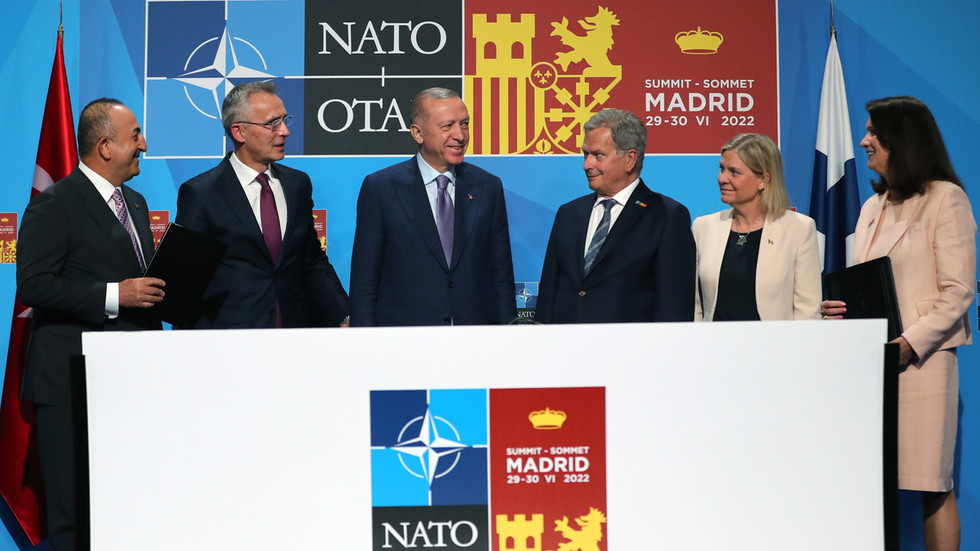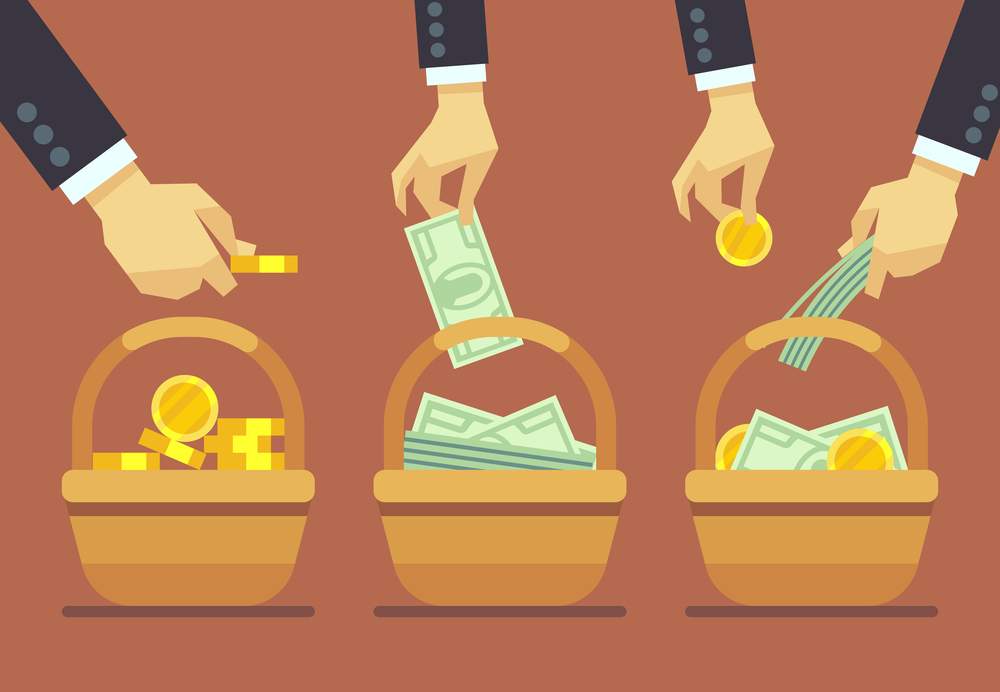This article is an on-site version of Martin Sandbu’s Free Lunch newsletter. Sign up here to get the newsletter sent straight to your inbox every Thursday
Political independence is supposed to insulate central bankers from the volatility of public opinion. But they themselves can give the impression of changing views with the zeal of born-again believers. From holding on to treating rising inflation as temporary longer than most last year (in my view correctly, as Free Lunch readers know), they are now the greatest champions of severe monetary tightening, come what may. But they may only have swung from one uncomfortable place to another, as warnings mount that they are tightening too much. As an example, read my colleague Colby Smith’s Big Read on the Fed’s dilemma, or the piece by Jeanna Smialek of the New York Times on the brittle popularity of Federal Reserve chair Jay Powell.
It has been a big week for central banking. The European Central Bank raised rates by 0.75 percentage points last week, the Fed did the same yesterday and the Bank of England is today announcing its latest rate decision (expected to be a large rise as well) and will publish a new policy report on its analysis. That should be interesting reading, as the previous one said the BoE expected inflation to fall well below its target, and the economy to fall far below its potential, in a few years.
If this is, perhaps, the moment of maximum uncertainty, then we should expect the debate on what central banks should do to reach fever pitch soon. In the interest of that debate being as good as possible, I would like to probe some claims a lot of people seem to treat as not just true but obviously true. Below are three contentions often treated as self-evidently true which are nothing of the sort. Our economic situation is a lot more complicated than simplistic claims would have it.
Contention 1: Central banks could have prevented this inflationary rise had they acted sooner
Those who accuse interest rate-setters of being “behind the curve” must be presupposing that central banks could and should have acted sooner to stop inflation in the first place. Set aside the difficulty of forecasting energy prices, especially when Russian president Vladimir Putin is weaponising them. What if central banks had known with certainty how energy prices would behave?
Then they would have known that between May 2020 and June 2022, energy prices would rise by 85 per cent in the US. They would have known that they would rise more than 80 per cent in the eurozone in the two years to last month. With energy purchases making up close to 10 per cent of consumer prices, that alone would mechanically add 4 points to measured annual inflation, before any repercussions on other prices.
So what, precisely, do their detractors (or they themselves) think central banks ought to have done? To have prevented the relative rise in consumer prices from lifting the general price level, all other prices would have had to fall by about 8 per cent on average in those two years. That is completely unrealistic, especially since many of those other goods and services use energy as inputs. So non-energy inputs, above all wages, would have had to collapse. But there is nothing central banks could have done to engineer a double-digit per cent fall in everyone’s salaries over a year or two. The big relative price shocks meant temporarily high inflation was unavoidable.
So we cannot argue from what central banks should have done to what they should do now. Any sensible argument must take this “sunk cost” of unavoidably realised inflation as a starting point and discuss what can be done from here on. And that depends on a proper understanding of what the current inflationary pressures are.
Contention 2: At least some current price pressures come from excessive demand, which central banks must eliminate
The conventional view is that inflation is to some extent driven up by aggregate demand in the economy that is out of hand because of pandemic-era stimulus. At least in the US, many accept that demand is a big part of the story. But the inconvenient fact is that the total volume of goods and services purchased is still shy of the pre-pandemic trend in the US (it was getting close before the Fed started tightening), and falls quite a way short of it in Europe. To think this is more than these economies can produce is to be very pessimistic about the permanent damage wrought by the pandemic, despite the strong and fast recovery from it.
True, nominal gross domestic product — that is, the value rather than the volume of all purchases — this year has broken through the pre-pandemic trend in the US, by 4 to 5 per cent. (But not in the eurozone, which some take to vindicate the view that inflation is demand-driven in America but not in Europe.) But to attribute this to excess aggregate demand begs the question. If specific prices go up but total demand stays the same, the nominal value of that stable real demand will go up, as in the example above. (The specific prices in question are, of course, those for energy, and in 2021 prices for durable goods when US consumers massively shifted their spending away from services towards goods.)
In other words, nominal spending will go up if some prices rise even if volumes that people want to buy remain unchanged — perhaps because pandemic government support could have made them less credit-constrained without driving them to buy more than before. Whether this kind of phenomenon or “excessive” aggregate demand is the cause, is precisely what is in contention.
Contention 3: But supply is down so even ‘normal’ demand is inflationary
A related argument is that negative supply shocks — in particular energy prices, but also pandemic-related shortages and bottlenecks — mean that even quite normal levels of aggregate demand have become inflationary. And everyone agrees we have had negative supply-side shocks. But dwell for a moment on how ambiguous this term is. It normally refers to economic disturbances that reduce the volumes of goods and services an economy can produce, and therefore raises prices.
But consider this: the global volume of oil production is as high as before the pandemic. US production of crude oil this year is shaping up to be the strongest on record. What about chips, which everyone was worried about last year? No sign of a supply shortage there either: US imports of semiconductors are nearly 50 per cent higher than they were before the pandemic (in value terms — but neither import prices nor domestic producer prices have risen anywhere near that much). The US’s own chip production is at record highs.
In the EU, of course, there is no doubt that the supply of natural gas from Russia has been significantly reduced, as a result of Putin’s weaponisation. But the latest EU gas market report states that total imports of natural gas actually increased slightly in the second quarter compared with a year earlier (its tiny domestic production was little changed). Europe’s rush for gas was successful, as buyers seem to have found substitutes for all the missing Russian supplies.
Since these are the goods at the core of the supply shock story, what is going on? Prices have very clearly risen a lot, but quantities have not fallen. It’s a funny kind of negative supply shocks that don’t lead to a negative change in supply. They are, more precisely, relative price shocks that inevitably affect inflation. For net importers of energy, they must also inevitably affect income — more has to be handed over to foreign producers for the same quantity of energy as before, so the country as a whole is poorer (see the recent speech by the BoE’s Ben Broadbent on how this complicates monetary policy).
But that is not the same as saying the country must inevitably produce less than before. If it can get the same amount of energy (or semiconductors) as before, even if at a higher price, the supply capacity of the economy in a basic physical sense should remain unchanged, even if more of what is produced has to be handed over in payment. And that raises the question both why demand needs to be brought down to align with supposedly lower supply, and whether it can possibly help inflation to reduce production from what it could otherwise be. It also explains why it is important to ask, as Paul Donovan does in the FT, whether one can encourage lower spending by consumers without reducing employment and wage growth.
In his press conference yesterday, Powell said the Fed aimed to “moderate demand so that it comes into better alignment with supply”. If only things were that simple.
Other readables
COP27, the global climate conference, is on next week, and leaders meet against the backdrop of reports pointing out how badly off course we are to reach net zero. The most frustrating thing about it is that if we got serious about our policies, we should expect getting to net zero to be less painful than many think, as I argued in a “Free Lunch on Film” released earlier this year.
David Pilling reports on what it takes to wean South Africa off coal.
I was in Dublin last week, where my resident colleague Jude Webber and I interviewed the Taoiseach (prime minister), Micheál Martin. He told us the electoral system for Northern Ireland helped to polarise an already fragmented party landscape and was ripe for reform.
What is Luiz Inácio Lula da Silva’s economic vision for Brazil?
George Soros explains why UK prime minister Rishi Sunak should issue perpetual bonds.
Bruegel has the latest stock-taking on how sanctions have affected the Russian economy and budget.
Numbers news
The eurozone posted awful inflation numbers for October. But it is impossible to avoid high inflation when energy prices have gone up by more than 40 per cent in a year. Meanwhile, there are strange things going on behind the overall number: services prices grew by only 0.1 per cent in October, and have hardly moved in three months.
Megan Greene points to the US inflation gauge that suggests inflation has already peaked.
Recommended newsletters for you
The Lex Newsletter — Catch up with a letter from Lex’s centres around the world each Wednesday, and a review of the week’s best commentary every Friday. Sign up here
Unhedged — Robert Armstrong dissects the most important market trends and discusses how Wall Street’s best minds respond to them. Sign up here















